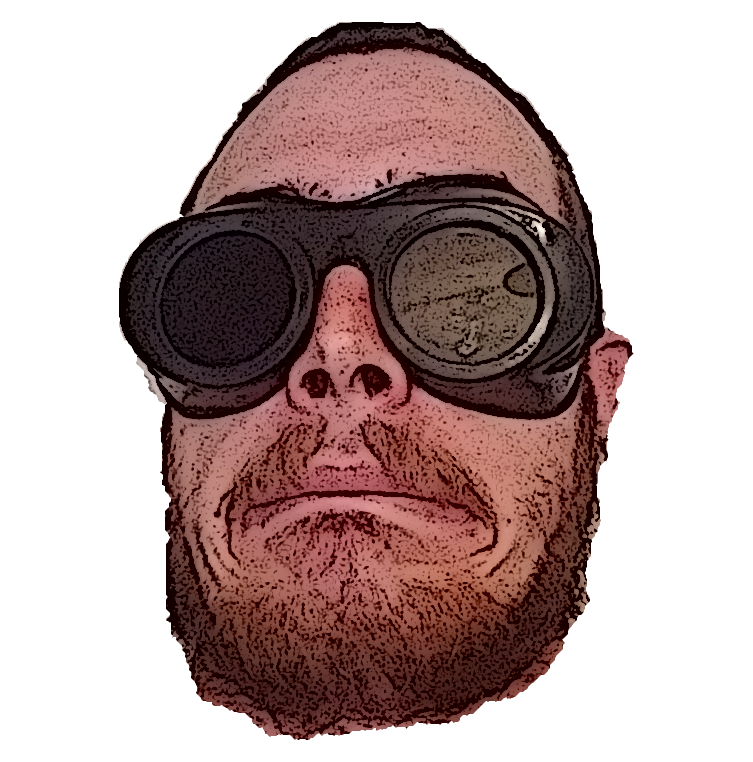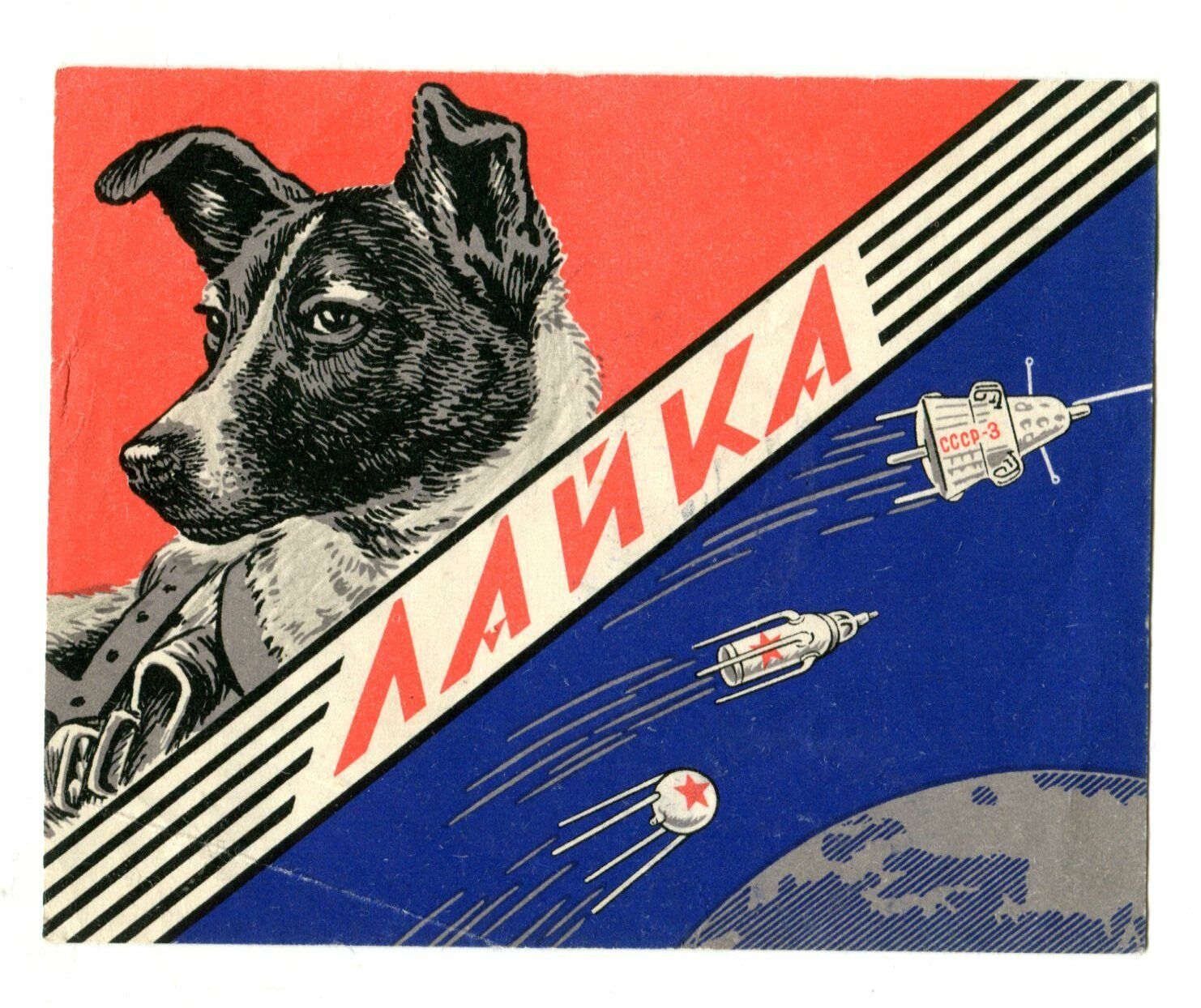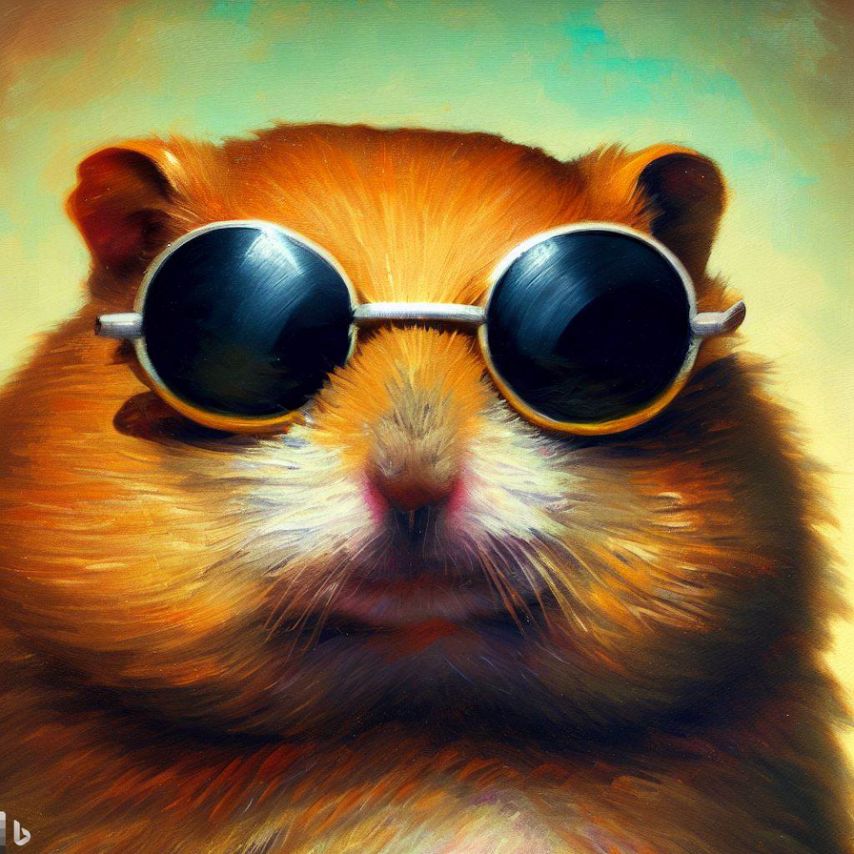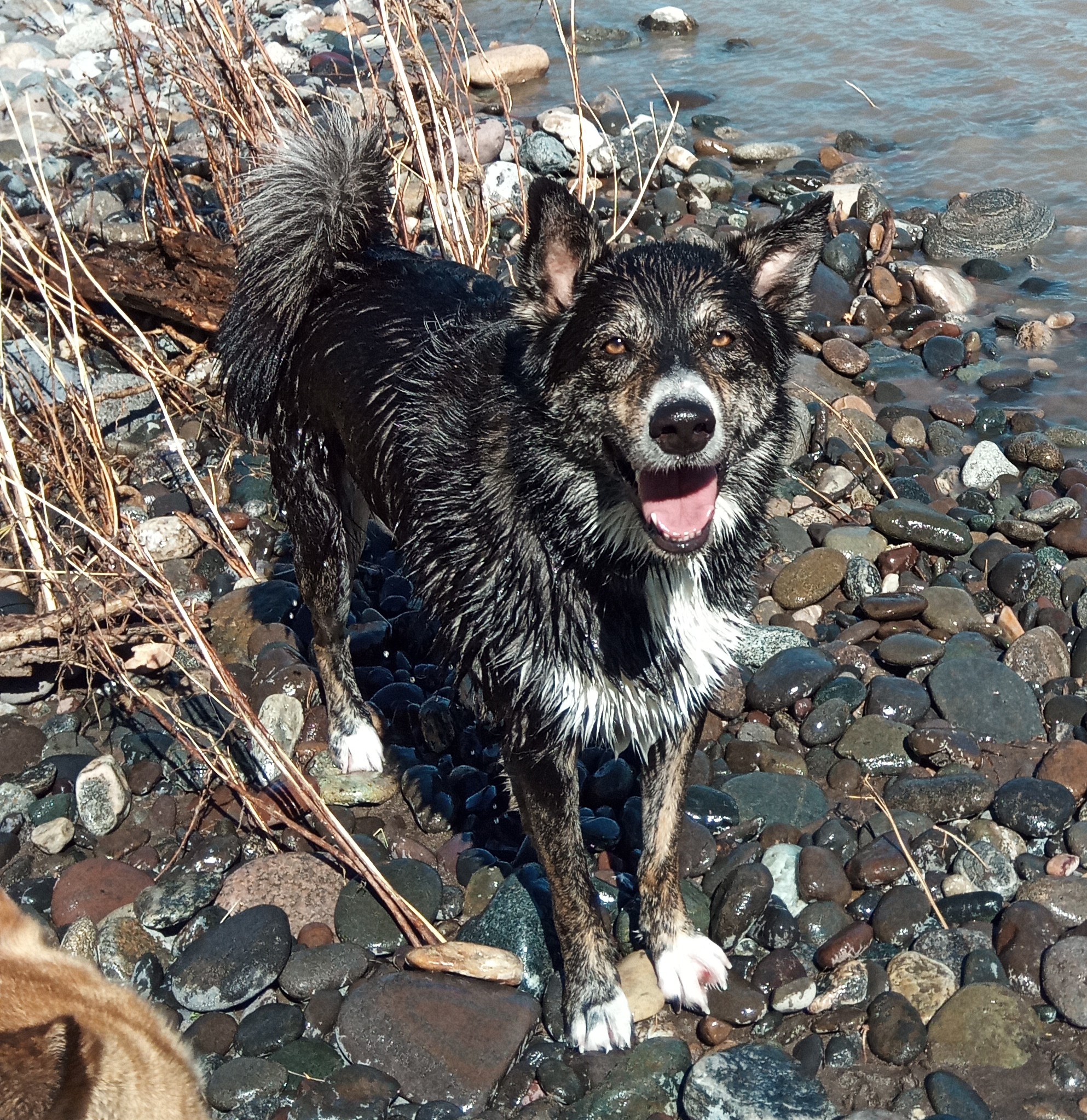Edit
To provide some context given the messages below. I was a professional photographer, and understand that getting a good photo is a skill. Exposure time, timing, location, and many other factors come into play when capturing a great image.
Seeing the aurora was a fantastic experience. The purpose of this post is to help reduce FOMO of those who could not see it. Many people who don’t know these things will imagine dancing lights in the sky of brilliance, and will be saddened by what they missed. While they did miss something, it’s important for them to know exactly what they missed.
Edit2 I should also note this is why I enjoy when photographers post gear, conditions, and settings alongside results. It tells viewers what was real.
It’s not an Instagram filter, it’s exposure time. I set my camera on night mode and it took pictures during 4-10 seconds and the results were incredible
But even with the naked eye the lights were incredible last night
We arrived to the park before sunset and the biggest display was right when it became dark enough and a lot of people started arriving 2-3 hours later after watching pictures of other people and they were complaining that it didn’t look as magical as the pictures. Lots of those people who arrived late were also using flashlights and just taking pictures of using their phones, not letting their eyes get used to the dark conditions or even really looking at the sky
This. Thank you for explaining it correctly, I’ve seen sooo many people saying it’s just filters. Of course, there will almost always be some colour correction but the way a camera a camera can capture the light is different to the naked eye.
Camera almost never can reproduce the image as our eyes see it. The dynamic range for example is vastly superior on eyes compared to a camera meaning that in some cases an HDR photo may infact more closely resemble the reality despite looking unnatural compared to a non-HDR photo.
While true, this is a bit misleading. While rhe eye does have a higher dynamic range than a standard camera lens and sensor, that is only true when there is enough light. In the dark, the situation is reversed, as the human eye has difficulty taking advantage of that range.
See edit and response above, thank you for the feedback.
I provided an edit above, as you make a good point. I was frustrated with those uninformed with flashes, too, and realized that the inverse could be true, which is why I made this post. Here is the edit for expediency:
Edit
To provide some context given the messages below. I was a professional photographer, and understand that getting a good photo is a skill. Exposure time, timing, location, and many other factors come into play when capturing a great image.
Seeing the aurora was a fantastic experience. The purpose of this post is to help reduce FOMO of those who could not see it. Many people who don’t know these things will imagine dancing lights in the sky of brilliance, and will be saddened by what they missed. While they did miss something, it’s important for them to know exactly what they missed.
Edit2 I should also note this is why I enjoy when photographers post gear, conditions, and settings alongside results. It tells viewers what was real.
Let me just say it bugs me when people apply filters to natural phenomena or pictures of animals because it alters my perception of how these things really look.
A little tweaking to improve clarity or contrast sure, but I’ve seen landscapes completely colorized in a way that almost feels like being lied to.
To be fair you don’t really have to use filters for this. Cameras are much better at capturing the colors of the aurora while in person it looks like a faint white glow in the sky. Possibly some white-balance thing where it way overcompensate.
Cameras also need relatively long exposures to capture those so it’ll also appear much brighter and vivid than we see with our own eyes, possibly because of the low light conditions we use our cones more than the rods.
It was actually really crazy last night when I was out. With my eyes I could just barely make out the white lines in the sky. Long exposure on my phone (~5 seconds) and it looks TOTALLY different. I would have never guessed there was all those purples and reds there. If my brother hadn’t texted me and said pull out your phone and take a picture I would have gone back inside and just shrugged.
I’m in a pretty dark sky area in Australia, was able to make out the colours and waves / lines with the naked eye at its peak. Camera showed lush, bright reds even with about 10-15 seconds of exposure.
It may just be the light pollution where I am. I’m not too far from a pretty large city. I’m thinking that washed out a lot of what I could see with the naked eye.
Edit to post above to cover this. Thank you.
This is exactly why I made this post. See edit to post.
I can barely see it with the naked eye, but my night sight android camera makes it bright reddish.
Some posters will have modified the image but not all.
Yeah I took a couple shots last night with my S21 Ultra and it just made the sky look like the old default wallpaper from like Mac OS X
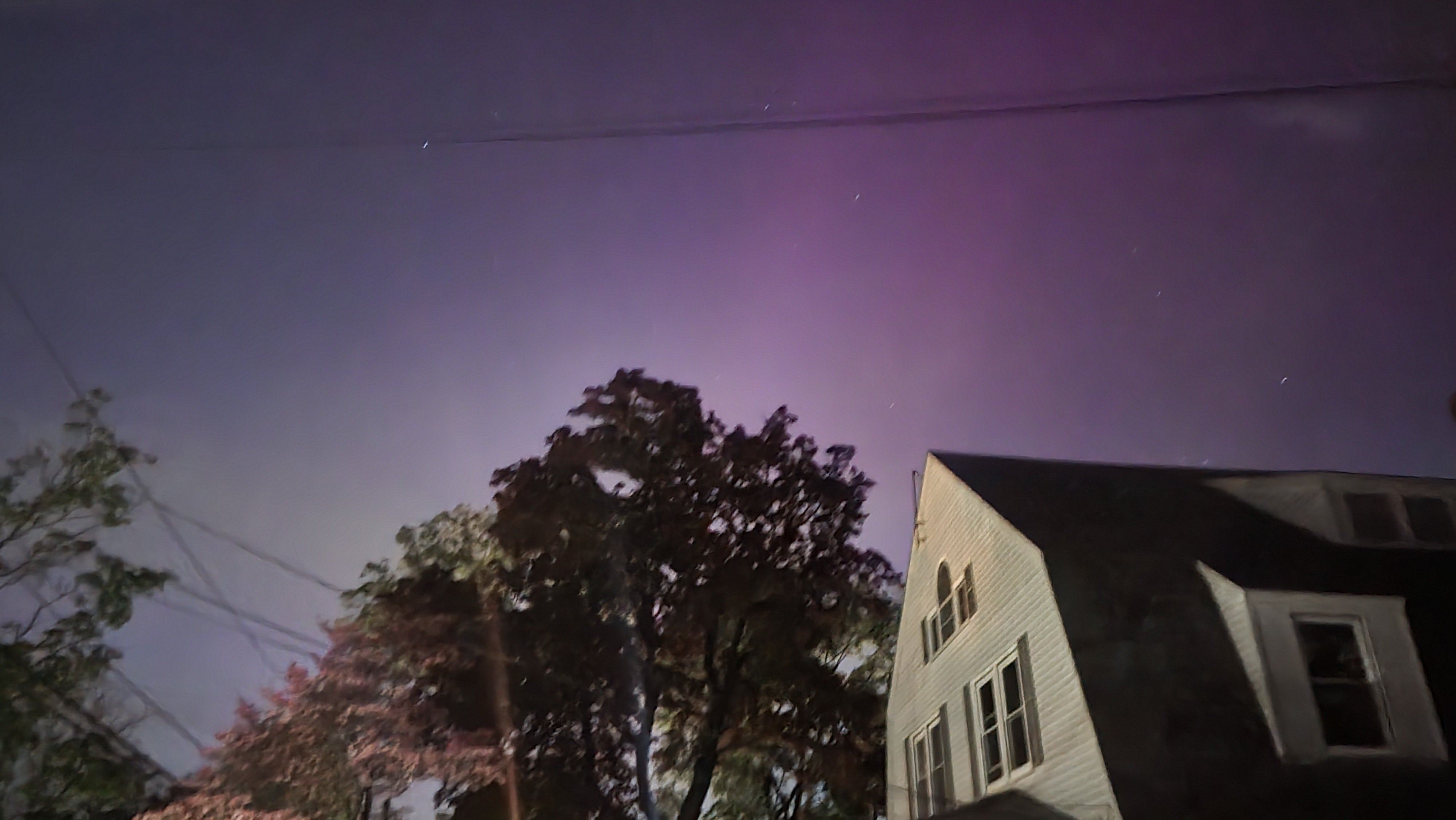
As a Samsung user I would expect a moon up on that night sky.
The sky looked all hues of purple and pink here. The android night Camera took a 3 second lapse and it was much more like the ops picture.
Tldr. Long exposure makes it look cooler (like everything at night). The pictures will always look more impressive, but that doesn’t mean the lights aren’t still visible and awe inspiring.
I think the biggest disappointment I had after moving to Alberta was finding out the Aurora Chaser groups use high exposure for all of their images and the actual aurora just looks like white beams most of the time. I do see green from time to time, but you need to go to dark-sky preserves or the fuckin’ Yukon to see the good ones.
Aurora photos are a real circle-jerk of dishonesty.
high exposure is used on almost any high-level landscape photography, even during daylight and not exclusively auroras. there is nothing wrong with squeezing down a couple of minutes into one picture for a better visualization
Long exposure is used for basically all astrophotography
There some bullshit going on with phone cameras now I’m really not happy with.
I got a s22 thinking the camera would be great but its actually pretty shit. The default AI is pure bullshit it completely changes the colours “oh a blue sky. Wouldn’t it be better if it was vomit inducing blue like a overly contrasted video game?”
Then when you turn that off it still overly brightens the picture.
I’m devastated with my phone because I thought at this point it would be near perfect photos but it’s not. It’s horribly optimised.
Does it have a pro/raw mode?
Yes. But I don’t really know how to make the most of it or how to lean.
Also I’m not sure I could use it in a timely manner.
I would recommend a short primer on exposure and aperture on YouTube. Once you grasp those, the rest is pretty easy to understand. The key is timely manner, thats why photographers set up in advance, and practice.
The timely manner thing is the biggest one for me. The use case for phone cameras has always been a camera always on you, ready to go in an instant, to take those cool moment photos. If I’m going to use proper photography techniques, it’s not with a phone camera.
The Samsung S22 cameras do suck, but there doesn’t seem to be any traction in getting customer satisfaction.
I can get noooo
Customer satisfaction 🎶
Absolute piece of shit cameras with slow shutter speed for sure, even on the Ultra. I brought mine back for a cheap ass Pixel 4A and used that for two years instead. That has been outdone only by my Pixel 7.
Same with the iPhone, I go to take a photo of a full moon on a dark night and it wants to make every pixel bright.
instaglam


Correct though
Hah, nice.
I was out in north London from 10:30 to 11:30 and I didn’t see a thing.
Finally someone pointed it out 😁 I love very far north and we have these almost every night (except now to August, as it never gets dark) and everyone simply posts enhanced versions, that you never see like that.
Except you have no idea how other people are seeing the auroras.
My own color vision got more vivid when I started meditating, and psychedelics have often given me hyper intense color perception. Sometimes even just sitting and imagining colors will open up new levels of vividness even in my imagination.
hyper intense color perception
So shouldn’t your perception of people’s subtle/muted aurora pictures also be hyper intense, making those muted colors more accurate?
Bullshit
I used the night sight camera mode on my phone to get some pretty cool shots.
Was the choice of the word “shots” conscious?
I could see avoiding the word photo(graph) as a way of conveying a more tenuous relationship with reality.
Meanwhile my entire state in the US is covered in clouds.
Here in the UK it looked like dim rays of light coming from a source of nothingness. Was a pretty cool effect. Pointing the camera really brought out the colours
I have the opposite thing when I take a picture of the moon… Looks brighter, bigger and more detailed to my naked eye than it does on film even with proper exposure and stuff. Always have to touch it up just to get it to look right.
If it’s a phone, that’s probably because the small lens can’t handle the contrast. I bet if you use digital zoom it helps some.
Using the standard lens on my SLR does the same. It comes off and can be replaced with other lenses though, I just don’t have anything other than a fisheye and the one that came with the camera. I don’t think the fisheye would be helpful here lol
Depends on where you live too. I can see the northern lights where I’m at pretty regularly anyway but last night they went all kinds of crazy.
Very true, if you were in Norway, or heck even northern UK, I bet it was very different than in the NE US.
None of my images were edited manually, I used a long exposure.
That’s what most of the night sight pics are. 2-5 second exposure.
I am all with you on editing images and creating a “fake” reality on social platforms.
But this poses the question: how much has digital tech become part of our perception and is digitally enhancing a picture really much of a difference if it just helps us see more of the actual reality? I don’t think increasing exposure and contrast is changing reality, it just squeezes down what we cannot see so easily and makes it visible in that narrow slit that our human perception can actually process. We use digital editing nowadays that it has become part of our whole process of perceiving reality, so much so that the digital picture litterally replaces what we saw with our eyes - simply because digital photography has become an extension, much like glasses, shoes, cars are litterally a part of our body.
Imho as long as it doesn’t create pixels from scratch that weren’t there in the first place, it is still viable to polish a picture of the sky to make it more appealing. I mean no buttcheeks were enhanced here, no eyes replaced or lips turned i to a grotesque sausage mouth freakshow 😅
A lot of these photos are made by actually using a long exposure rather than tweaking the “exposure” slider in post
but that’s great. using long exposure is a skill that is highly regarded in the photographers community. early photo plates needed exposure for at least 7 minutes, requiring the subject to stand completely motionless. quite a challenge.
It doesn’t take any skill to buy a tripod




